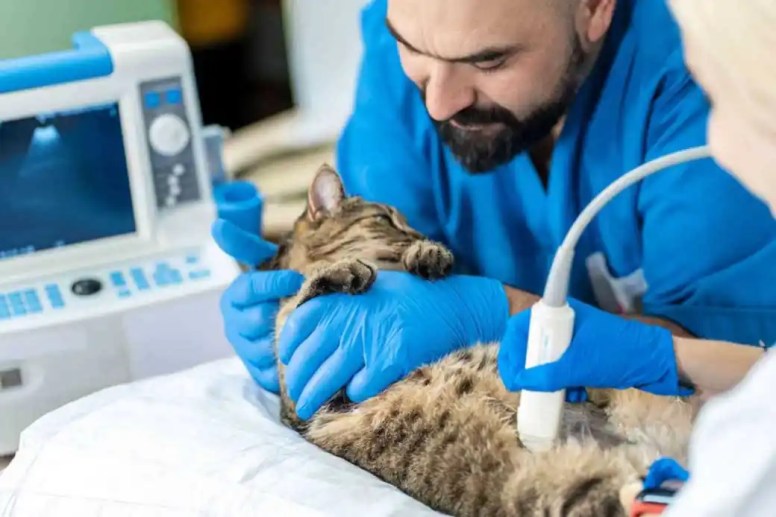Maintain Your Pet Safe with Normal Pet Vaccinations from a Relied On Veterinarian
Maintain Your Pet Safe with Normal Pet Vaccinations from a Relied On Veterinarian
Blog Article
Inoculation Guidelines From Your Trusted Veterinarian
Inoculation standards supplied by your relied on veterinarian play a crucial duty in securing your pet's health and wellness and health. Furthermore, dealing with usual false impressions surrounding vaccinations can additionally boost animal proprietors' confidence in these preventive steps.

Importance of Inoculations
Inoculations play an essential role in protecting pets versus a variety of avoidable illness. By stimulating the immune system to recognize and combat specific virus, vaccinations significantly lower the occurrence of infectious conditions that can affect a family pet's health and durability. Not only do vaccinations shield specific pets, but they likewise add to herd resistance, thus decreasing the overall frequency of illness in the animal population.
Prompt vaccinations aid to alleviate the spread of illness such as rabies, parvovirus, and distemper, which can have severe repercussions for both animals and human beings. Additionally, inoculations are typically a demand for boarding facilities, brushing solutions, and canine parks, making them essential for those that wish to mingle their pets.

Core Vaccinations for Pets
While the specific inoculation needs of pet dogs can vary based upon specific aspects, core vaccines are globally recommended to shield versus one of the most serious and usual illness (Veterinarian Enterprise). Core vaccines are those deemed necessary for all animals, no matter their lifestyle or geographical location, as they protect versus possibly fatal and extremely contagious ailments
For pets, the core vaccinations include those for canine distemper, parvovirus, adenovirus (hepatitis), and rabies. Adenovirus can result in liver illness, while rabies is a zoonotic condition that postures a threat to both human beings and pets.
In cats, core vaccines incorporate feline panleukopenia, feline calicivirus, feline herpesvirus (rhinotracheitis), and rabies. Feline panleukopenia is a highly contagious viral disease that impacts the immune system and intestines. Calicivirus and herpesvirus are major contributors to upper breathing infections in cats, while rabies stays a crucial issue for public health.
Seek advice from your vet to ensure your pets obtain their core inoculations on timetable.
Non-Core Vaccines Explained
Non-core vaccines are tailored to address particular threats connected with a family pet's direct exposure, lifestyle, and environment to particular diseases. Unlike core vaccines, which are universally suggested for all animals, non-core injections are considered based upon private situations. These vaccinations are specifically important for animals that might run into special virus because of their geographical place, travel habits, or tasks.
Instances of non-core injections consist of those for Bordetella bronchiseptica, which is connected to kennel cough, and Lyme condition, triggered by ticks. Pets that frequently engage with other pets, such as those in boarding facilities, dog parks, or brushing settings, may take advantage of Bordetella vaccination. Similarly, if you stay in an area where Lyme illness prevails, immunizing against this illness can be a sensible choice for outdoor-loving pet dogs.
Other non-core injections may include those for leptospirosis, canine flu, and feline leukemia, relying weblink on the particular danger variables present. It is important to have a thorough conversation with your veterinarian regarding your family pet's way of living and the potential requirement for these vaccinations, guaranteeing a tailored inoculation approach that finest shields your hairy buddy.
Inoculation Arrange Introduction

As pet dogs develop, it is essential to stick to the recommended booster vaccinations. Vet Enterprise. For adult pets, core vaccinations are typically given every one to three years, depending upon the specific vaccine and neighborhood guidelines. Non-core vaccines might be encouraged based upon lifestyle elements and regional illness occurrence, demanding a customized approach
Regular veterinary examinations are crucial for updating vaccination schedules. Your vet can offer guidance on the most appropriate immunizations for your animal, factoring in age, health status, and environmental threats. By staying proactive and informed, pet proprietors can guarantee their hairy friends obtain prompt and efficient vaccinations, thus securing their health and wellness and wellness throughout their lives.
Typical Myths Concerning Vaccinations
Mistaken beliefs about family pet inoculations can bring about confusion and unwillingness among pet owners regarding the immunization process. One common myth is that important link vaccines are unneeded for interior family pets. While it's true that indoor pet dogs encounter reduced risks, they are not entirely unsusceptible to diseases, as microorganisms can be introduced through numerous ways, consisting of human apparel and various other pets.
An additional misconception is that vaccinations can trigger the diseases they intend to avoid. In truth, many injections contain suspended or attenuated virus, which can not create illness in healthy and balanced animals. Some pet owners also think that their pets must not be vaccinated if they are currently healthy; nonetheless, inoculations are a proactive procedure that assists prevent the beginning of illness.
Furthermore, many pet dog owners fear that vaccinations will cause long-lasting wellness problems. While side results can occur, they are commonly moderate and short-lived. The benefits of inoculation-- protecting animals from potentially deadly conditions-- much outweigh the dangers. Recognizing these common myths is vital for liable pet ownership and guaranteeing the health and wellness and safety of your hairy companions. Constantly consult your veterinarian for precise details customized to your pet dog's particular requirements.
Final Thought
In recap, adherence to inoculation standards is find here critical for making certain the wellness and long life of pet dogs. Core vaccines offer vital security against serious conditions, while non-core injections resolve details dangers based on individual way of lives. Developing a detailed vaccination schedule, together with routine veterinary check-ups, facilitates optimum health and wellness administration. Resolving usual misconceptions surrounding vaccinations even more reinforces the importance of notified decision-making in animal care. Ultimately, an aggressive method to inoculations is crucial for maintaining pet well-being.
Not just do inoculations secure individual pets, but they likewise add to herd immunity, therefore lowering the general frequency of diseases in the family pet population.
Mistaken beliefs about animal inoculations can lead to confusion and unwillingness amongst animal proprietors pertaining to the immunization process. While it's real that interior pets encounter reduced threats, they are not completely immune to illness, as microorganisms can be presented through different ways, consisting of human apparel and other pet dogs.
Some pet owners likewise believe that their family pets should not be vaccinated if they are already healthy; nevertheless, vaccinations are an aggressive action that helps prevent the onset of disease.
The advantages of inoculation-- safeguarding family pets from possibly deadly conditions-- much surpass the threats.
Report this page